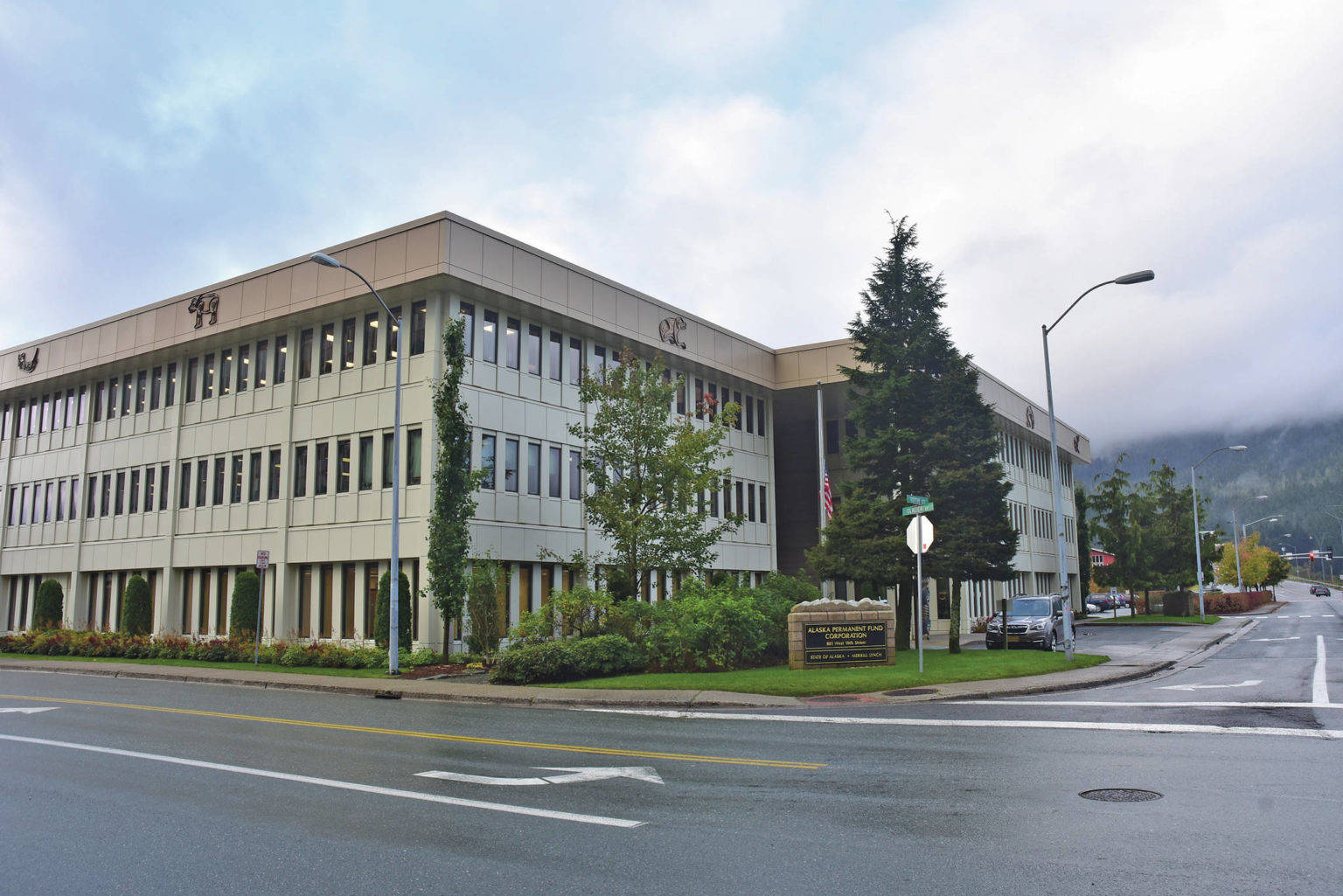Members of the legislative fiscal plan working group heard testimony Tuesday from Alaska Permanent Fund Corporation CEO Angela Rodell, who presented to on the fund’s record-breaking growth over the past year. The work group is holding meetings every day this week ahead of the scheduled Aug. 2 start of a special legislative session and will finish the week with a series of opportunities for public testimony.
The Alaska Permanent Fund grew by more than $15 billion during the 2021 Fiscal Year, ending at $81.1 billion as of June 30, according to preliminary reports released Monday by APFC. The two accounts that make up the fund, the principle and the earnings reserve account ended the fiscal year at $60 and $21 billion respectively, according to APFC.
Earnings from the Permanent Fund make up the largest portion of the state’s revenue, and proposals for resolving the state’s financial situation are dependent on the fund’s performance. On Tuesday, lawmakers heard presentations from both Rodell and representatives from the state’s ratings agency, Callan.
The Permanent Fund’s strong performance this year has led some politicians, namely Gov. Mike Dunleavy, to call for a one-time overdraw of the ERA in order to fund the state’s budget, but there are lawmakers across the political spectrum who staunchly oppose overdrawing the account. Rodell told lawmakers Tuesday the Board of Trustees of the fund have repeatedly urged the Legislature to adhere to the 5% of market value draw on ERA earnings the state allows itself each year.
[Officials urge health diligence as COVID cases rise]
Before lawmakers can begin crafting recommendations, one of the group’s admitted challenges was establishing mutually agreed-upon assumptions for the state’s financial situation. The group has spent most of its meetings so far hearing presentations on the state’s financial history and obligations, but at its Monday meeting heard proposals from lawmakers on how to resolve the problem. Rep. Adam Wool, D-Fairbanks, and Sen. Mike Shower, R-Wasilla, each gave presentations on their own proposals for resolving the state’s financial issues.
The fund was well-positioned to take advantage of volatility in the market caused by the COVID-19 pandemic,Rodell said in an interview with the Empire. According to Rodell, markets began to pick up again in 2020 shortly after the start of the state’s fiscal year on July 1. The fund made gains from both public and private equity markets Rodell said, and certain industries such as software saw a boost during the pandemic with the change to remote working.
Speaking to the Empire, Rodell said she couldn’t recommend overdrawing from the Earnings Reserve Account unless there was a way to ensure it truly was a one-time occurrence, saying the state’s drawdown of another state fund, the Constitutional Budget Reserve, illustrated the difficulty around the problem.
“I think we have to define ‘one time’ and what is going to guarantee Alaskans that it is truly going to be a one-time thing,” Rodell said. “It’s not apparent to me today, what that looks like and what prevents changes to that a year from now.”
The working group was created following a divisive regular session of the Alaska State Legislature and two special sessions already this summer and is meant to draft recommendations for the next special session. Some group members have complained about the slow pace, and said they don’t see how the group will be able to draft meaningful recommendations in time.
Members of the House Republican Minority had emphasized the need for public input and on Monday the Alaska State Legislature announced opportunities for public testimony would begin at the end of the week. Starting Thursday, public testimony sessions will be held for various regions of the state, the first being Anchorage and Juneau the last on Monday, the same day the special session is scheduled to start.
There will be one testimony session each for Anchorage, Wasilla, Fairbanks and Juneau, each from 6-9 p.m. and held at regional legislative offices.
Residents unable to testify in person will be able to testify by phone during the Juneau session on Monday, Aug. 2, the Legislature said in a release. Juneau’s session will be held at the Alaska State Capitol while the other meetings will be held at regional Legislative Information Offices.
Speaking to the Empire by phone Tuesday, Sen Jesse Kiehl, D-Juneau, said the workgroup was making progress but it may need more time.
“We are walking a really bumpy road but we’re walking it together,” said Sen. Jesse Kiehl, D-Juneau, one of the members of the working group. “There are different philosophies and a different understanding of the history but we’re getting closer on a direction.”
When the work group first met lawmakers said they had talked with the governor about potentially moving the start of the next special session, but Dunleavy’s office has maintained it intends to start the session Aug. 2.
Kiehl told the Empire the workgroup had discussed taking more time, saying, “if we ask for more time we want to do it with broad agreement.”
• Contact reporter Peter Segall at psegall@juneauempire.com. Follow him on Twitter at @SegallJnuEmpire.

